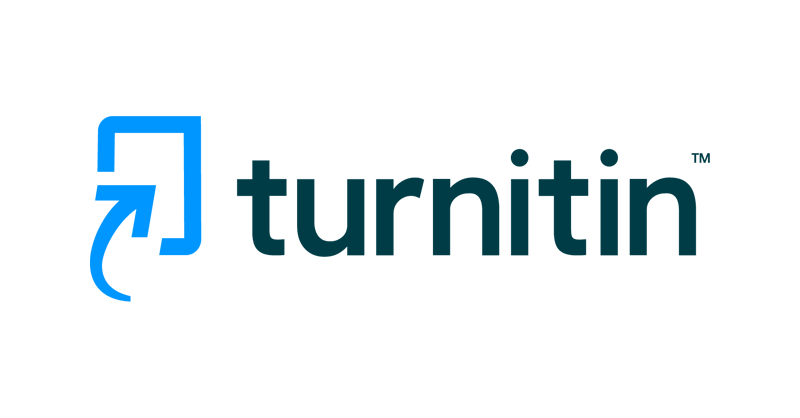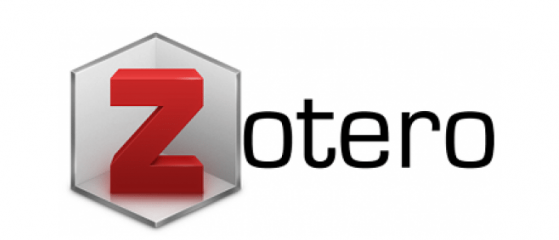Threat Analysis of the Rejection of the Policy on the Excise Extensification of Sugar-Sweetened Beverages in Packaging
DOI:
https://doi.org/10.70710/sitj.v2i2.53Keywords:
Excise, Intelligence Strategy, Scenario Planning, Tax Sugar Sweetened Beverages (SSB), ThreatsAbstract
The excise policy on sugar-sweetened beverages (SSB), which has been regulated in Law No. 7 of 2021 concerning the Harmonization of Tax Regulations, faces significant implementation challenges, especially from the resistance of industry players. The purpose of this study is to analyze the potential threat of rejection of the excise policy on sugar-sweetened beverages (SSB) and formulate an intelligence strategy in dealing with these threats. The research was conducted using qualitative research methods with data collection techniques from in-depth interviews with relevant stakeholders, observations, and library research. The results of the study show that there is a serious threat of policy rejection, which is characterized by a systematic pattern of resistance from industry players through the construction of negative narratives, the utilization of financial capacity for policy interventions, and the momentum of post-pandemic economic vulnerability. Multinational companies with strong financial capabilities and extensive networks have the potential to intervene in the policy process through various strategic approaches. The research recommends the preparation of an integrated intelligence strategy through three dimensions: accelerating the issuance of Government Regulations, building an inclusive multistakeholder dialogue platform, and designing an accommodative transition mechanism. This strategy is formulated to prevent strategic surprises through scenario planning that formulates anticipatory and preventive measures for the implementation of the excise policy on sugar-sweetened beverages (SSB).
Downloads
References
AlTamimi, J. Z., Alshwaiyat, N. M., Alkhalidy, H., AlKehayez, N. M., Alagal, R. I., Alsaikan, R. A., & AlFaris, N. A. (2023). Sugar-sweetened beverages consumption in a multi-ethnic population of young men and association with sociodemographic characteristics and obesity. International Journal of Environmental Research and Public Health, 20(6), 4861. https://doi.org/10.3390/ijerph20064861
Anderson, P., Smith, J., & Wilson, K. (2024). Industry influence in health policy: A case study of sugar-sweetened beverage taxation in Southeast Asia. Health Policy and Planning, 39(2), 145-159.
Andreyeva, T. (2022). Outcomes following taxation of sugar-sweetened beverages: A systematic review and meta-analysis. JAMA Network Open, 5(6), e2215276. https://doi.org/10.1001/jamanetworkopen.2022.15276
Apindo. (2024, Agustus 23). Apindo wanti-wanti dampak cukai minuman berpemanis, termasuk pengurangan tenaga kerja. Bisnis.com. https://ekonomi.bisnis.com/read/20240823/12/1793610/apindo-wanti-wanti-dampak-cukai-minuman-berpemanis-termasuk-pengurangan-tenaga-kerja
Asosiasi Industri Minuman Ringan. (2022). Laporan tahunan industri minuman ringan Indonesia 2021. ASRIM.
Badan Pengawas Obat dan Makanan. (2016). Peraturan BPOM Nomor 21 Tahun 2016 tentang Kategori Pangan. BPOM.
Badan Pusat Statistik. (2023). Statistik konsumsi pangan Indonesia 2022. BPS-Statistics Indonesia.
Bappenas. (2024). Sustainable Development Goals Indonesia 2024. Badan Perencanaan Pembangunan Nasional.
BPJS Kesehatan. (2023). Laporan pengelolaan program tahun 2022. BPJS Kesehatan.
Buckton, C. H., Fergie, G., Leifeld, P., & Hilton, S. (2019). A discourse network analysis of UK newspaper coverage of the "sugar tax" debate before and after the announcement of the soft drinks industry levy. BMC Public Health, 19(1). https://doi.org/10.1186/s12889-019-6799-9
Center for Indonesia's Strategic Development Initiatives. (2022). Ringkasan kebijakan: Definisi dan cakupan minuman berpemanis dalam kemasan. CISDI.
Central Statistics Agency. (2023). Sugar-sweetened beverage consumption statistics Indonesia 2022. BPS.
Chaloupka, F. J., Powell, L. M., & Warner, K. E. (2019). The use of excise taxes to reduce tobacco, alcohol, and sugary beverage consumption. Annual Review of Public Health, 40, 187-201. https://doi.org/10.1146/annurev-publhealth-040218-043816
Chaloupka, F. J., Yurekli, A., & Fong, G. T. (2012). Tobacco taxes as a tobacco control strategy. Tobacco Control, 21(2), 172-180. https://doi.org/10.1136/tobaccocontrol-2011-050417
Cnossen, S. (2005). Theory and practice of excise taxation: Smoking, drinking, gambling, polluting, and driving. Oxford University Press. https://doi.org/10.1093/0199278598.001.0001
Cnossen, S. (2010). The economics of excise taxation. In The Elgar guide to tax systems (pp. 278-299). Edward Elgar Publishing. https://doi.org/10.4337/9780857933898.00014
Colchero, M. A., Popkin, B. M., Rivera‐Dommarco, J., & Ng, S. W. (2016). Beverage purchases from stores in Mexico under the excise tax on sugar sweetened beverages: Observational study. BMJ, h6704. https://doi.org/10.1136/bmj.h6704
Colchero, M. A., Rivera-Dommarco, J., Popkin, B. M., & Ng, S. W. (2017). In Mexico, evidence of sustained consumer response two years after implementing a sugar-sweetened beverage tax. Health Affairs, 36(3), 564-571. https://doi.org/10.1377/hlthaff.2016.1231
Creswell, J. W. (2014). Research design: Qualitative, quantitative and mixed methods approaches (4th ed.). Sage Publications.
Directorate General of Customs and Excise. (2022). Implementation of excise policy on packaged sugar-sweetened beverages. Ministry of Finance.
Falbe, J., Thompson, H. R., Becker, C. M., Rojas, N., McCulloch, C. E., & Madsen, K. A. (2016). Impact of the Berkeley excise tax on sugar-sweetened beverage consumption. American Journal of Public Health, 106(10), 1865-1871. https://doi.org/10.2105/AJPH.2016.303362
Firmansyah, H., Prasetyo, A. G., & Nurhasanah, S. (2023). Sinergi kelembagaan dalam pengamanan kebijakan strategis nasional: Studi kasus kebijakan fiskal Indonesia. Jurnal Kebijakan Publik, 14(2), 123-145. https://doi.org/10.1234/jkp.2023.0123456
Gabungan Pengusaha Makanan dan Minuman Indonesia. (2020). Laporan tahunan industri makanan dan minuman Indonesia 2019. GAPMMI.
GAPMMI. (2024, Agustus 28). GAPMMI harap pengenaan cukai minuman berpemanis ditunda di tahun depan. Kompas.com. https://money.kompas.com/read/2024/08/28/083000326/gapmmi-harap-pengenaan-cukai-minuman-berpemanis-ditunda-di-tahun-depan
Grogger, J. (2017). Soda taxes and the prices of sodas and other drinks: Evidence from Mexico. American Journal of Agricultural Economics, 99(2), 481-498. https://doi.org/10.1093/ajae/aaw103
International Diabetes Federation. (2019). IDF diabetes atlas (9th ed.). International Diabetes Federation.
International Diabetes Federation. (2021). IDF diabetes atlas (10th ed.). International Diabetes Federation.
Iswara, P. W., Sutopo, W., & Hisjam, M. (2021). Analisis dampak pengenaan cukai minuman berpemanis terhadap industri makanan dan minuman di Indonesia. Jurnal Optimasi Sistem Industri, 20(1), 65-76.
Julianto, S., & Sari, R. P. (2019). Kesiapan administrasi perpajakan dalam rencana pengenaan cukai minuman berpemanis. Jurnal SIKAP (Sistem Informasi, Keuangan, Auditing dan Perpajakan), 3(2), 147-156.
Kementerian Keuangan. (2022). Nota keuangan dan rancangan anggaran pendapatan dan belanja negara tahun anggaran 2023. Kementerian Keuangan.
Kementerian Keuangan. (2022). Peraturan Menteri Keuangan Nomor 30/PMK.04/2022 tentang Tata Cara Penetapan Tarif Cukai dan Harga Jual Eceran Barang Kena Cukai. Kementerian Keuangan.
Kementerian Keuangan Republik Indonesia. (2024, Maret 18). Bahaya di balik goda minuman berpemanis. Media Keuangan. https://mediakeuangan.kemenkeu.go.id/article/show/bahaya-di-balik-goda-minuman-berpemanis
Lee, J., & Allen, J. (2023). Sugar-sweetened beverage consumption and sleep duration among adult men: The role of race and ethnicity. Journal of Men's Health. https://doi.org/10.22514/jomh.2023.070
Lembaga Penyelidikan Ekonomi dan Masyarakat Fakultas Ekonomi dan Bisnis Universitas Indonesia. (2023). Proyeksi pasar minuman ringan Indonesia 2021-2025. LPEM FEB UI.
Lykke, A. F. (1997). Defining military strategy. In J. Boone Bartholomees Jr. (Ed.), U.S. Army War College guide to strategy (pp. 179-185). U.S. Army War College Press.
Ministry of Finance. (2022). Excise policy framework for Indonesia. Ministry of Finance Republic of Indonesia.
Ministry of Health. (2013). Riset kesehatan dasar 2013. Badan Penelitian dan Pengembangan Kesehatan.
Ministry of Health. (2018). Riset kesehatan dasar (Riskesdas) 2018. Badan Penelitian dan Pengembangan Kesehatan Kementerian Kesehatan RI.
Ministry of Health. (2023). Riset kesehatan dasar (Riskesdas) 2023. Badan Penelitian dan Pengembangan Kesehatan Kementerian Kesehatan RI.
Murwani, S., Karmana, I. W., Hasibuan, H. D., & Sriyanto, A. (2020). Urgensi pengenaan cukai pada minuman ringan berpemanis. Jurnal Perspektif Bea dan Cukai, 4(2). https://doi.org/10.31092/jpbc.v4i2.968
Nurwahyuni, A., Harimurti, P., & Nurkholis, A. B. (2020). Cukai minuman berpemanis sebagai instrumen kebijakan pengendalian konsumsi di Indonesia: Sebuah analisis kebijakan. Jurnal Ekonomi Kesehatan Indonesia, 5(1), 22-31.
Onagan, F. C., Ho, B. L., & Capanzana, M. V. (2019). Development of a sweetened beverage tax, Philippines. Bulletin of the World Health Organization, 97(2), 154-159. https://doi.org/10.2471/BLT.18.220459
Popkin, B. M., & Hawkes, C. (2016). Sweetening of the global diet, particularly beverages: Patterns, trends, and policy responses. The Lancet Diabetes & Endocrinology, 4(2), 174-186. https://doi.org/10.1016/S2213-8587(15)00419-2
Prakoso, D. (2021). Keamanan kebijakan publik: Perspektif intelijen negara. Jurnal Keamanan Nasional, 7(1), 25-40.
Public Health England. (2020). Sugar reduction: Report on progress between 2015 and 2019. https://www.gov.uk/government/publications/sugar-reduction-report-on-progress-between-2015-and-2019
Rahman, M. S., & Chen, H. (2023). Policy resistance and public health: Lessons from sugar-sweetened beverage taxation in developing countries. Journal of Public Health Policy, 44(1), 78-92.
Riehle, K. P. (2013). Assessing foreign intelligence threats. American Intelligence Journal, 31(1), 96-101. https://www.jstor.org/stable/26202049
Rosdiana, H., Sidik, M., & Hidayati, N. (2018). Analisis kebijakan ekstensifikasi cukai di Indonesia. Jurnal Ilmu Administrasi dan Organisasi, 25(1), 1-11.
Sari, Y. R., Syaukat, Y., & Mulatsih, S. (2022). Analisis kebijakan fiskal dan ketahanan pangan di Indonesia. Jurnal Ekonomi dan Kebijakan Publik, 13(1), 27-41.
Sasono, W., & Isharyanto, I. (2024). Analysis of excise policy on sweetened packaged drinks (MBDK): Consumer protection legal perspective. International Journal of Educational Research & Social Sciences, 5(2), 307-313. https://doi.org/10.51601/ijersc.v5i2.782
Scarborough, P., Adhikari, V., Harrington, R. A., Elhussein, A., Briggs, A., Rayner, M., ... & White, M. (2020). Impact of the announcement and implementation of the UK Soft Drinks Industry Levy on sugar content, price, product size and number of available soft drinks in the UK, 2015-19: A controlled interrupted time series analysis. PLoS Medicine, 17(2), e1003025. https://doi.org/10.1371/journal.pmed.1003025
Shaw, J. E., Sicree, R. A., & Zimmet, P. Z. (2010). Global estimates of the prevalence of diabetes for 2010 and 2030. Diabetes Research and Clinical Practice, 87(1), 4-14. https://doi.org/10.1016/j.diabres.2009.10.007
Smith, B. T., Warren, C. M., Anderson, L. N., Hammond, D., Manuel, D. G., Li, Y., & Hobin, E. (2024). The equitable impact of sugary drink taxation structures on sugary drink consumption among Canadians: A modelling study using the 2015 Canadian community health survey-nutrition. Public Health Nutrition, 27(1). https://doi.org/10.1017/s1368980024000545
Smith, K. E., Savell, E., & Gilmore, A. (2012). What is known about tobacco industry efforts to influence tobacco tax? A systematic review of empirical studies. Tobacco Control, 22(2), e1-e1. https://doi.org/10.1136/tobaccocontrol-2011-050098
Sugirman, S. (2009). Analisis intelijen sebuah kontemplasi. CSICI.
Supriyatno, M. (2020). Intelijen kebijakan: Pendekatan komprehensif dalam pengamanan kebijakan nasional. Jurnal Pertahanan & Bela Negara, 10(2), 145-162.
Tempo. (2024, Maret 13). Cukai minuman berpemanis diterapkan, asosiasi pengusaha bantah minuman biang diabetes. Tempo. https://www.tempo.co/ekonomi/cukai-minuman-berpemanis-diterapkan
Teng, A. M., Jones, A. C., Mizdrak, A., Signal, L., Genç, M., & Wilson, N. (2019). Impact of sugar-sweetened beverage taxes on purchases and dietary intake: Systematic review and meta-analysis. Obesity Reviews, 20(11), e12868. https://doi.org/10.1111/obr.12868
Undang-Undang Nomor 17 Tahun 2011 tentang Intelijen Negara. (2011).
Undang-Undang Nomor 7 Tahun 2021 tentang Harmonisasi Peraturan Perpajakan. (2021).
Walbeek, C. v., Blecher, E., Gilmore, A., & Ross, H. (2012). Price and tax measures and illicit trade in the framework convention on tobacco control: What we know and what research is required. Nicotine & Tobacco Research, 15(4), 767-776. https://doi.org/10.1093/ntr/nts170
WHO. (2022). Impact of taxes on sugar-sweetened beverages: A systematic review of evidence. WHO Technical Report Series.
Widjajanto, A. (2005). Reformasi intelijen negara. Pacivis UI dan Friedrich Elbert Stiftung.
Widjajanto, A. (2021). Economic intelligence in the era of globalization. Strategic Studies Institute.
World Bank. (2023). The economic case for sugar-sweetened beverage taxation in Indonesia (Policy Research Working Paper No. 9876). World Bank Group.
World Health Organization. (2010). Global strategy to reduce the harmful use of alcohol. WHO Press.
World Health Organization. (2022). Impact of taxes on sugar-sweetened beverages: A systematic review of evidence. WHO Technical Report Series.
World Health Organization & World Bank. (2020). Global report on sugar-sweetened beverage taxation. WHO Press.
Wright, A., Smith, K. E., & Hellowell, M. (2017). Policy lessons from health taxes: A systematic review of empirical studies. BMC Public Health, 17(1). https://doi.org/10.1186/s12889-017-4497-z
Downloads
Published
How to Cite
Issue
Section
License
Copyright (c) 2025 Security Intelligence Terrorism Journal (SITJ)

This work is licensed under a Creative Commons Attribution-NonCommercial-ShareAlike 4.0 International License.









